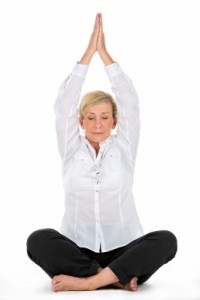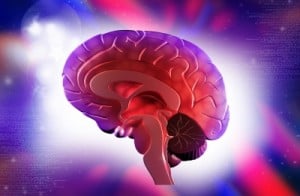
Menopause, a time where a woman’s ovary function ceases, is defined by the absence of menstrual period for twelve months. The average age for menopause to begin is 51 years old. Changes in the body quickly become apparent as some undesirable symptoms such mood changes. Women going through menopause often find their frustration tolerance drops substantially, and subsequently, mood swings become a regular endurance. Due to these changes, women often feel a lack of motivation, great fatigue, and difficulty concentrating, all caused by feelings of sadness and anxiety. How do women combat these symptoms of mood change?
Exercise and Eat Healthy – When dealing with mood changes, exercise and healthy eating is often the last idea on a person’s mind. However, exercise boosts hormones in the brain responsible for elevating mood. Eating the right types of foods instead of eating foods high in fat, carbs, and sugar will benefit mood in the long run instead of creating a temporary fix for negative feelings.
Neurofeedback – By teaching the brain to function calmly, neurofeedback enhances brain function to allow the brain to return to normal (or better) functioning. Neurofeedback sessions aim to eliminate mood-related symptoms of menopause, including feelings of depression and anxiety. With all of the hormonal changes occurring in the body, the brain just needs a little extra help learning how to adjust, which neurofeedback can provide!
Avoid Alcohol – During menopause, the body is going through substantial changes, and adding alcohol to the mix will only exacerbate negative emotional symptoms and other physiological symptoms, like hot flashes. Additionally, if a woman is experiencing feeings of anxiety or sadness, the potential for alcohol abuse heightens as well. Self-medicating with alcohol proves to be a poor solution, particularly because alcohol is a depressant and can make emotional distress worse in the long run, and can lead to abuse, causing menopausal symptoms to increase in severity.
Find Social and Emotional Support – Make sure to spend time with family, friends, and loved ones during this time of transition. Find social communities that have shared interests with which to get involved, such as a book club or knitting group. Creative outlets are a great way to stay in healthy emotional shape. If additional emotional support is needed, consider visiting a therapist weekly.
 Practice Self-Calming Skills – Learning how to become calm in moments of intense emotional reaction is key! Rhythmic breathing, yoga, and meditation are all great examples of practices that engage the connectedness of the mind and body to create an overall sense of calm and peace. For a simple rhythmic breathing exercise to do at home, check out this rhythmic breathing gif available on HighExistence.com!
Practice Self-Calming Skills – Learning how to become calm in moments of intense emotional reaction is key! Rhythmic breathing, yoga, and meditation are all great examples of practices that engage the connectedness of the mind and body to create an overall sense of calm and peace. For a simple rhythmic breathing exercise to do at home, check out this rhythmic breathing gif available on HighExistence.com!








